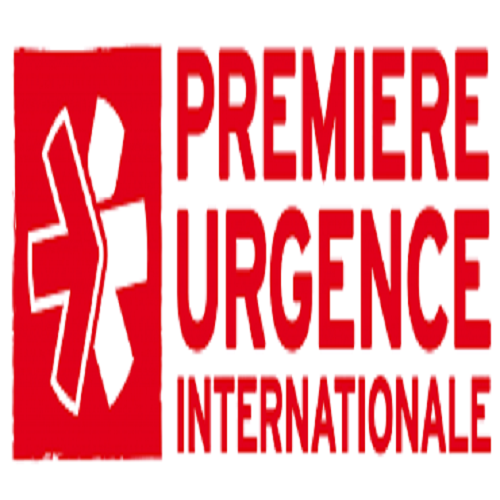| |
Première Urgence Internationale (PUI) is a non-governmental, non-profit, non-political and non-religious international aid organization. Our teams are committed to supporting civilians’ victims of marginalization and exclusion, or hit by natural disasters, wars and economic collapses, by answering their fundamental needs. Our aim is to provide emergency relief to uprooted people in order to help them recover their dignity and regain self-sufficiency. The association leads on average 200 projects per year in the following sectors of intervention: food security, health, nutrition, construction and rehabilitation of infrastructures, water, sanitation, hygiene and economic recovery. PUI is providing assistance to around 7 million people in 21 countries – in Africa, Asia, Middle East, and Europe. PUI Libya mission started implementing operations in East (Benghazi and Alkufra) of Libya in 2017. The organization develop a lifesaving response that provides primary health care services to the most vulnerable population (internal displaced populations and their host communities, migrants, refugees and asylum seekers) combined with an integrated basic needs response to address the overall health situation of the PoC in detention centers and in urban settings.
General Context :
Libya, a mostly desert and oil-rich country with an ancient history, has more recently been known for the 42-year rule of the mercurial Colonel Muammar Gaddafi – and the chaos that has followed his departure (BBC, 2019). The country has splintered, and since 2014 has been divided into competing political and military factions based in Tripoli and the east. Among the key leaders are Prime Minister Fayez Sarraj, head of the internationally-recognized government in Tripoli, Khalifa Haftar; leader of the Libyan National Army, which controls much of eastern Libya; Aghila Saleh, speaker of the House of Representatives based in the eastern city of Tobruk; and Khaled Mishri, the elected head of the High State Council in Tripoli.
Humanitarian consequences:
In 2020, the humanitarian situation in Libya is increasingly complex. The protracted nature of the conflict severely impacts on people’s wellbeing and livelihoods. Political stalemate has resulted in a governance vacuum, and coupled with widespread violence and insecurity, including direct attacks on public infrastructures, including health care infrastructures, and have disrupted the economy and public service delivery across the country. Furthermore, spikes in violence, such as the escalation of conflict in Tripoli since April 2019 and clashes in Murzuq in August 2019, have resulted in increased civilian casualties and further displacement (HNO, 2020).
Across the country, over 301,000 Libyans remain displaced, including 128,000 people due to the Tripoli conflict, reversing the declining trend in displacement. As displacement has increased, so has the number of Libyans who are returning to their homes, around 447,000 people. Living conditions, including access to clean drinking water (36% of HHs report limited access to sufficient water), medical services (22% of PHFs are closed, 33% of PHFs lack of essential medicines), and safe housing (around 4,000 IDPs are in need of shelter) have all degraded due to the protracted situation in the country, particularly for women and children (HNO, 2020).
Despite the crisis, Libya remains an attractive destination for migrant workers due to an economy that relies on foreign labour, higher salaries and historical ties, as well as being a transitory route for people seeking opportunities or asylum in Europe. An estimated 655,000 refugees and migrants are in Libya, including 48,000 registered refugees and asylum seekers. However, refugees and migrants continue to be exposed to protection risks, human rights violations, exploitation and abuse (HNO, 2020). |
|
PUI’s strategy/position in the country
The main programmatic objectives of PUI can be synthetized as follows:
- Enhance protection environment and access to essential services for conflict-affected communities in Libya.
- Provide life-saving assistance by ensuring a safe and dignified access to health services as well as an access to clean water, basic sanitation facilities and hygiene items for the affected families in Detention Centers.
- Improve the quality of the health services provided to the people through the national health facilities.
History of the mission and current programs
PUI Libya mission started implementing operations in East of Libya in 2017. The organization has developed a lifesaving response that provides primary health care services to the most vulnerable population (internal displaced populations and their host communities, migrants, refugees and asylum seekers) combined with an integrated basic needs response to address the overall health situation of the PoC in detention centres and in urban settings. As a result, after three years of experience, PUI is now positioning as a significant actor targeting all groups of population in various settings in all eastern Libya. Its constant and solid field presence enables the organization to develop strong relationships with key stakeholders (authorities, local community leaders and local and international NGOs), as well as acceptance in reference to the activities implementation. In 2020, 2 Mobile Health Teams are deployed in Kufra and 1 in Detention Centers in Eastern Libya. PUI is implementing an integrated approach, with Protection and MHPSS specialist embedded in each MHT. Additionally, PUI is working on the reinforcement of the health system through training and capacity building project for health professionals, and the rehabilitation of health facilities. To date, the mission is implementing 4 projects funding by AICS, EU, ECHO/ and UNHCR.
-
- Title: Libya Equal Access and Development for Recovery: enhancing access to health services (AICS) in Al Kufra and Benghazi
- Title: Life-saving assistance to PoC in detention centres and Assistance to Internally Displaced Persons in East of Libya (UNHCR) in Benghazi
- Title: Evidence based NCD Care: A Model for PHC in Libya (EU) in Benghazi
- Title: Enhance protection environment and access to essential services for conflict-affected communities in southern Libya. (ECHO / SDC) in Al Kufra
To note, due to the administrative context, the majority of the humanitarian intervention in Libya are being managed remotely from Tunis. |


